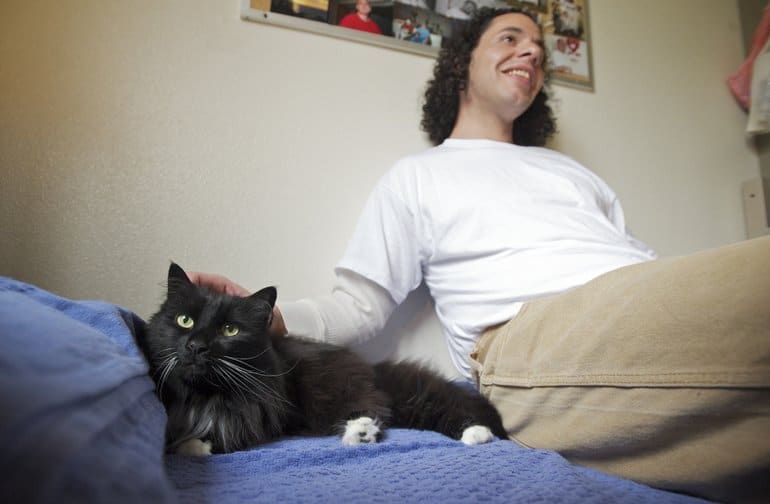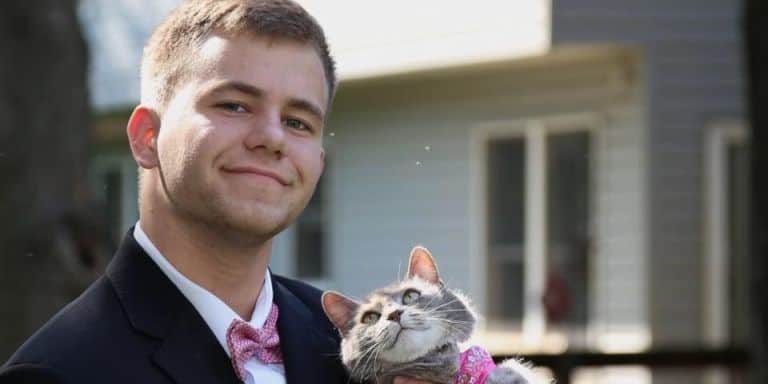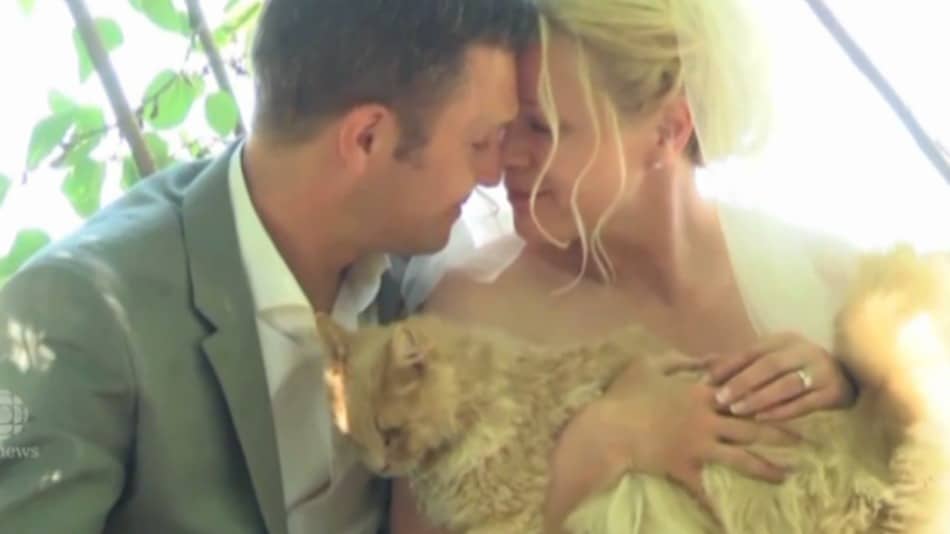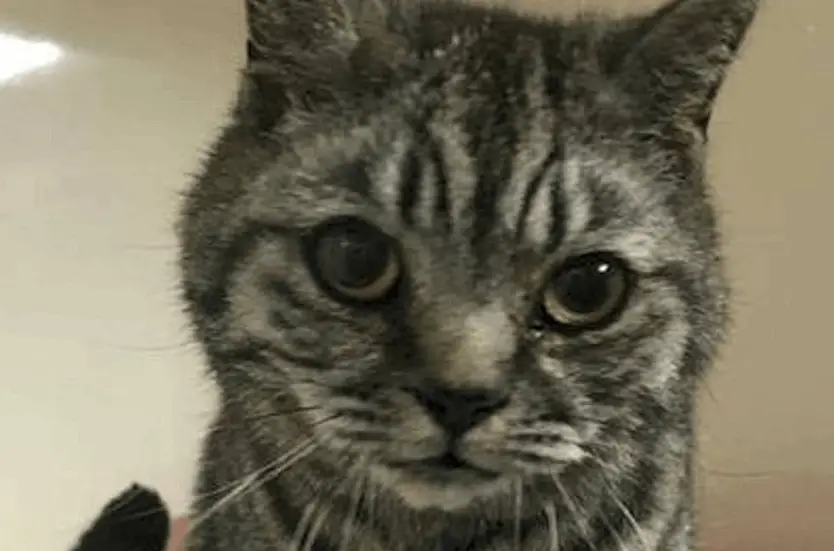Cats are just like us in many ways. They also experience the advancement of age in their own unique way. Your kitty may have spent most of her life with you through thick and thin, but as the years progress, your cat may not be as agile as before.
Cats are adept at hiding any signs of slowing down, but their health check may tell you that your cat is aging and needs special care to handle it. The ailments of older cats are not always easy to detect if you do not know from what problems that they can suffer.
Read below and find out what the common ailments of senior cats are and how you can fix them.
As your kitty reaches her senior years, she will begin to slow down. The Cornell University College of Veterinary Medicine has noted that cats will appear sleepier and less active. They may not appear to climb or jump on slopes and also face difficulties during walks.
Some aging cats are prone to gaining weight, while some cats lose weight. There are a variety of symptoms that appear in older cats. Some of the problems are so serious that you should talk to your vet about the consequences.
Arthritis
Arthritis, also known as osteoarthritis, is a degenerative joint condition in cats. In osteoarthritis, the cartilage in the joint breaks down, and the joint becomes inflamed and sore. As a result, there is a friction that begins to appear due to the rubbing of the adjacent bones against each other.
Cats with osteoarthritis experience extreme pain and decreased joint movement. The common signs that appear in these conditions are:
- Lameness and unwillingness to move
- Change in behavior like grumpiness
- No interest in playing and less interaction with people
- Grooming difficulty in the middle of the back
- Stiffness in a joint after a long rest and that get better with movement
- Missing the litter box if the sides are high and it is not easily accessible
- Reduced ability to jump up onto objects, such as furniture
If your cat is overweight, then she is more likely to suffer from arthritis, so make sure your kitty maintains her ideal weight. Moderate exercise can help your cat reach her perfect weight.
Kidney Failure
Kidney failure is a common problem in older cats. The exact cause of this problem is unclear. Researchers at Colorado State University have suggested that is high blood pressure and hyperthyroidism contribute to the deterioration of the kidneys. However, age-related degeneration, genetics, and lifestyle also play an important role.
The kidney plays an essential role; it is responsible for removing waste from the body. The kidney also produces hormones and regulates blood pressure.
Kidney failure can be of two types: acute and chronic. It is usually chronic kidney failure that affects older cats. Acute kidney failure usually occurs from ingesting poisons such as toxic plants or antifreeze. Common symptoms that appear in kidney failure are excessive thirst, excessive urination, inappetence and weight loss.
Your vet will suggest treatment after examining your kitty’s current condition and previous history. If the kidney problem is caught early in life and treated, it will save your cat’s life and increase the quality of the years she lives.
Cancer
Cancer is defined as the uncontrollable growth of abnormal tissues that destroy healthy tissues in the body. According to Dr. Lundberg, in the veterinary field, cancer in felines is very underrepresented. We have very little information about feline cancer, and it offers an excellent opportunity for researchers to do advanced research.
Different types of tumors are found in cats, from benign non-harmful tumors to malignant and faster-growing tumors. Sometimes the tumor can spread throughout the body.
Cancer is more common in older cats. Cancer signs and symptoms depend on the affected organ, and can be very non-specific.
- Increased thirst
- Weight loss
- Depression
- Passing more urine
- Vomiting and diarrhea
- Poor coat condition
Hyperthyroidism
The thyroid gland is located in the neck; It is small but one of the most powerful glands in the body. It can affect your cat’s energy level and metabolic function. When excessive thyroid hormone is produced in your cat’s body, it will wreak havoc on your pet’s health. Hyperthyroidism is more common in older cats.
According to the Journal of Feline Medicine and Surgery, the first case of feline hyperthyroidism was reported in the late 1970s. After that, there is an increase in the number of cases. Hyperthyroidism is more common in older cats over 10 years old. It is estimated that more than 10% of older cats have hyperthyroidism.
The usual signs that appear are weight loss and hyperactivity. Cats shed more than usual and seem very thirsty. Some cats also seem to be hungry all the time. It can also cause heart murmurs, increased blood pressure, and as mentioned earlier, lead to kidney disease.
The symptoms of hyperthyroidism are similar to those of other age-related problems, but it can be easily diagnosed by your veterinarian by performing some simple blood tests. Your vet will prescribe medication for hyperthyroidism or possibly recommend surgery to remove the thyroid gland.
Constipation
Older cats are more prone to constipation and experience changes in bowel and toilet habits. Always make sure your cat has enough clean water to drink. Common signs that appear in constipation are:
- Straining to pass feces
- Passing feces less frequently
- Hard feces
- Feeling pain while passing feces

High Blood Pressure
A study was conducted at the American College of Veterinary Internal Medicine, in which it is found that older cats are more prone to high blood pressure or hypertension. High blood pressure can affect different organs of the cat’s body, leading to blindness, seizures, and other harmful conditions.
Deafness
It is challenging to diagnose deafness in cats because deaf cats can compensate for their lack of hearing with other senses. Some common signs of deafness in older cats are
- No response to any loud calls
- Loud meowing
- Being startled easily
- Disorientation or dizziness
Rarely, ear infections can also be the cause of deafness in senior cats.
Dental Disease
Dental disease is prevalent in older cats and is usually due to plaque. Common symptoms that appear in dental disease are red or swollen gums, bleeding gums, and bad breath.
Bad breath in cats is a common problem and occurs when odor-producing bacteria accumulate inside the mouth. If not treated early, saliva and bacteria can develop plaque and tartar when they combine. This won’t end here, but it can progress to periodontal disease and tooth loss also.
You can identify dental disease in your cat by looking at common signs like brownish tartar, difficulty chewing or eating, swollen gums, and excessive drooling. If you see any of these signs in your cat, you should contact your veterinarian.
Diabetes
Approximately one in 200 older cats are affected by diabetes mellitus. It appears mainly after the age of seven and is commonly associated with obesity. The best way to keep your kitty out of this condition is by maintaining a lean body weight.
Like in humans, cats can suffer from type I (genetic) or type II (insulin-resistant) diabetes. In cats, type II is the most common and is triggered by being overweight. Diabetic cats are given insulin twice a day via injections. Symptoms of diabetes in cats are excessive urination, increased hunger, and increased urination volume. If your kitty shows any of these signs, be sure to visit your vet.
Conclusion
As your cat ages, take her to the vet for regular annual checkups. Some vets recommend a checkup at six months. This is important because many of the diseases, if caught in the early stages, have a good prognosis, but if left a long time, can cause your cat serious health implications.
Vicki Smirnova is a professional pet writer and Senior Content Editor of ThePets.net/. She’s an avid pet lover with 5+ years of writing experience. Vicki shares her knowledge and expertise to help pet parents live in harmony with their pets. She specializes in a lot of areas: pet health, nutrition, behavior, training, and walking. ThePets provides useful information about keeping animals healthy and happy. Also, become a fan of ThePets on Facebook.




